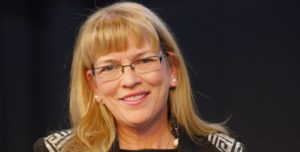Soon after Finance Minister Travis Toews announced a $17-billion deficit, on 6 July he fired a warning shot at the United Nurses of Alberta. While acknowledging nurses’ contributions to responding to the COVID-19 health crisis (“working diligently throughout”), the News release stressed “the important work of getting the province’s finances back on track.” The terse release reiterated the gist of the MacKinnon Report’s recommendations that for Alberta to

rebalance its finances it must cut both the size of the public service as well as bring salaries and benefits in line with other provinces. According to Toews, nurses in Alberta get paid 5.6 per cent more than other comparator provinces (presumably B.C., Quebec and Ontario). This differential costs the Alberta taxpayers an extra $141-million per year
at a time when our finances are already stretched. The need to bring wages in line with other large provinces does not diminish our deep respect for the exceptional work and dedication of public sector workers. It is simply reflective of our fiscal reality, and one that many sectors in the province have experienced. …Alberta can no longer afford to be an outlier. We are hopeful that AHS and UNA will bargain in good faith to ensure health care workers are treated fairly, while being respectful of the province’s fiscal reality.
The release further emphasized the additional spending burden of $5.1-billion imposed by the pandemic of which $1.5-billion was health care spending.

The news release did not reference the three per cent wage cut proposed by a consortium of employers AHS, Covenant Health, Lamont Health Care Centre and Bethany Group (Camrose).
The UNA responded that afternoon noting the proposal adds a three per cent salary rollback in addition to the “elimination of semi-annual lump sum payments, reduced shift and weekend premiums, etc.” effectively meaning a five per cent wage rollback. The UNA has not disputed the higher pay compared with other provinces claim but argue that average weekly earnings for professions are 15 per cent higher than in the rest of the country.
After further negotiations on Thursday 8 July, employers shaved the cuts back slightly. The UNA release of 8 July provided a 22 page summary on the proposed changes to the contract between the government and the UNA. The UNA did acknowledge that the employers did reinstate overtime provisions, transportation allowances and education allowances.

There remain a number of other differences in the bargaining positions of the two sides. The UNA wants the new contract to expire on 31 March 2022, while the government wants the contract to expire in March 2024. Other consequential areas of dispute concern: Article 7 Hours of Work and Scheduling; Article 8- Overtime; Article 14- a raft of proposed changes by the employer concerning promotions, transfers and vacations; Article 15- Lay-off and Recall in which the employer wants changes to “red-circling”; Article 18-Named Holidays where the UNA is seeking the addition of June 21st as National Indigenous People Day; Article 21- Employee benefits where the UNA wishes to extend benefits including a flexible spending account of $1000 while the employer wants certain limits; Article 30 dealing with Part-time, Temporary and Casual Employees; Article 36- Professional Responsibility where the UNA has proposed a long series of amendments; Article 37- Extended Work Day where the employers have proposed two options; Article 44-Mobility where the employers are proposing numerous amendments; and a variety of amendments to the Letter of Understanding.
In its Thursday update to members the key elements of the UNA negotiating position was outlined and members were urged to ‘Stay safe, Stay Strong, and Stay united.’ Nurses were urged to “stand together to resist these destructive changes” which were characterized as making working conditions worse, impacting patient safety, and cutting nurses’ pay.”
Media and Public
Following Toews’ warning shot, the Edmonton Journal had a headline entitled ‘Exhausted’ nurses threaten strike’ which confusingly reported that should negotiations fail on Thursday, both parties would need to reach “an essential services agreement in the event of a strike or a lockout, undergo mediation, a 14-day “cooling off” period, and then take a strike vote.” According to The Canadian Press’s report by Daniela Germano, the UNA’s Smith stated Alberta cabinet ministers are “paid 15 to 22 per cent more than their counterparts in comparable provinces” a damning indictment of hypocrisy.
The NDP’s Christina Gray framed the debate as an attack on mostly working women.

The Battle for Public Opinion
Alberta’s labour movement, allied with Alberta’s New Democrats, seem quite willing to take on Kenney’s government. If letters to the Editor in Saturday’s Edmonton Journal are an indication it is UNA 3- UCP 0. The public sector union movement, especially nurses, have been on the front-lines of the battle with COVID-19 and enjoy considerable public sympathy. The contrast of higher cabinet pay and professional wages in Alberta is a smart tactic of the UNA. It however will not satisfy hard line critics who would argue that Alberta public servants, including politicians, should not be paid more than B.C., Quebec, and Ontario public servants.
The struggle will likely escalate over the coming weeks as both sides seek to convince Alberta’s electorate of the merits of their cases. Given the $1.3-billion provision for the Keystone-XL investment gambit, it would appear that it’s the UCP that will have an uphill battle winning over public opinion.
Related Posts